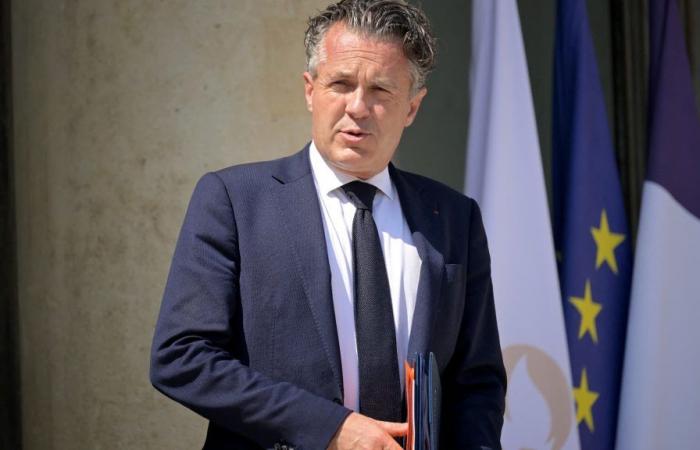The Minister for Ecological Transition welcomes the good “dynamics” and affirms that France has reduced its emissions in certain high-emitting sectors such as transport.
France continued its trajectory of reduction in greenhouse gas emissions in the first quarter of 2024, with a decline of 5.3%, a “dynamic” which the government welcomes, which is slow to publish its roadmap for years to come.
“It shows that there is a dynamic that is underway,” welcomed the Minister of Ecological Transition Christophe Béchu on France Bleu, revealing the figures.
Over the whole of 2023, greenhouse gases emitted by human activity had already fallen by 5.8% in France, with a total equivalent of 373 million tonnes of carbon dioxide (Mt CO2e ) released into the atmosphere, Citepa, the organization responsible for drawing up France’s carbon footprint, announced at the end of May. The organization has not yet officially published its figures for the first quarter of 2024.
“All sectors are declining”
“The second positive element in all this is that all sectors are declining: energy thanks to the increase in hydroelectricity production and thanks to nuclear power, but also transport which was the area in which we had the most harm” added Christophe Béchu.
“This is proof that some of the measures we have taken are working” underlined the minister a few days before the first round of the legislative elections.
According to a press release from the Ministry of Ecological Transition, over the months of January, February and March 2024, France emitted a total of 101 million tonnes of CO2 equivalent (Mt CO2e).
These provisional figures are only gross emissions, not taking into account the absorption of CO2 by forests and soils, the main carbon sinks whose quality is deteriorating due to the already visible effects of global warming and human activities. Furthermore, the emissions counted include activities on the territory but not those linked to imports.
“Production of carbon-free electricity”
In detail by sector, it is energy that contributes the most to decarbonization, “with a drop in emissions of 16.8%, or -2 Mt CO2e, due to the acceleration in electricity production carbon-free”, according to the ministry.
Buildings (-7.1%) and industry (-5.6%) are also in decline, driven on the one hand by the drop in heating emissions (-7.8%) due to “an overall quarter softer than last year and the continuation of sobriety behaviors”, and on the other hand by the efforts of sectors such as the agri-food industry (-9.3%) or construction (-7. 6%).
Transport, the leading emitting sector, remains on a lesser decline (-3%) but in line with that already observed last year, “with both a decrease for road transport (-3.1%) driven by the drop observed emissions associated with diesel vehicles and French air transport (-2.8%). Agriculture is not mentioned.
An economic improvement?
However, for months many environmental NGOs have been pointing out that these declines could only be cyclical, due in particular to milder winters and the economic slowdown.
The High Council for the Climate (HCC), however, estimated that up to two thirds of the drop in emissions last year could be attributed to public climate policy.
France, which must align with the European objective of -55% emissions by 2030 compared to 1990 and which aims for carbon neutrality by 2050, had already failed to respect its first carbon budget ( 2015-2018) and had revised its ambitions downwards in 2019.
The assessment of the 2nd National Low Carbon Strategy (SNBC) should be drawn up in 2025 on the basis of updated inventory data. But according to the ministry, based on provisional data for 2023, the “carbon budget (…) for the period 2019-2023 in gross (420 Mt CO2eq/year on average) should be respected with a margin of 100 Mt CO2eq”.
In net terms, that is to say taking into account the contribution of carbon sinks, the objectives could however be more difficult to achieve. At the end of May, Citepa announced that France’s net emissions for 2019-2023 exceeded the carbon budget by 1.4 Mt (0.4%) due to insufficient absorption of CO2 by forests and floors.
The third version of the SNBC, announced a few months ago as “imminent” by the government, is still awaited, suspended from the results of the legislative elections.






